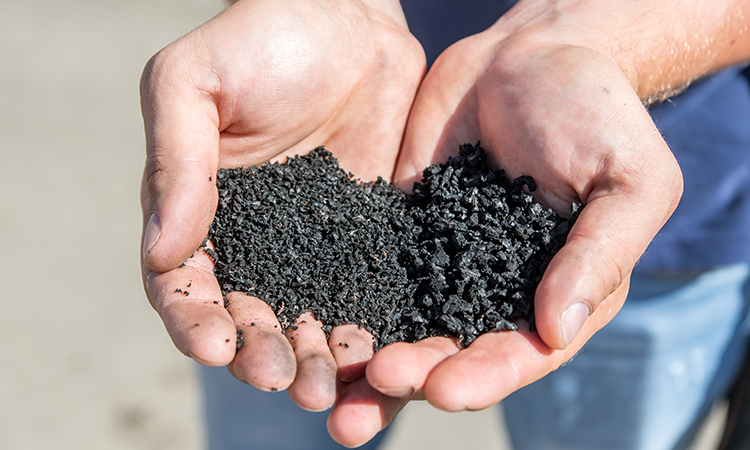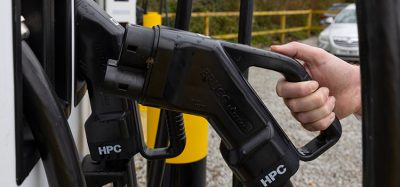Lime makes sustainable rubber commitments
- Like
- Digg
- Del
- Tumblr
- VKontakte
- Buffer
- Love This
- Odnoklassniki
- Meneame
- Blogger
- Amazon
- Yahoo Mail
- Gmail
- AOL
- Newsvine
- HackerNews
- Evernote
- MySpace
- Mail.ru
- Viadeo
- Line
- Comments
- Yummly
- SMS
- Viber
- Telegram
- Subscribe
- Skype
- Facebook Messenger
- Kakao
- LiveJournal
- Yammer
- Edgar
- Fintel
- Mix
- Instapaper
- Copy Link
Posted: 26 April 2021 | Joshua Minchin - Intelligent Transport | No comments yet
Lime has pledged to use more sustainable rubber for the tyres on its fleet, as well finding further uses for used tyres such as in playgrounds.


Lime has made a commitment to use more sustainable rubber tyres on its vehicles in a bid to lower the carbon impact of its fleet. The micromobility operator already operates a 100 per cent electric fleet, but now it is seeking to ensure the rubber it uses does not unduly harm habitats in other parts of the world.
According to the Global Platform for Sustainable Natural Rubber, Every year 14 million tonnes of rubber are produced globally, of which 85 per cent is produced by smallholders. The majority of the world’s rubber (70 per cent) goes to the tyre industry. Lime says surging demand and a highly labour intensive process can decimate endangered forests and contribute to human rights abuses like long hours, loss of customary forest access and land grabbing, among others.
Unsustainable and illegal rubber production is one of the top threats to many Southeast Asian forests, the region where 90 per cent of the world’s natural rubber is sourced, according to the WWF.
“We’re proud to announce that we’ve today joined the Global Platform for Sustainable Natural Rubber (GPSNR), committing to new standards for fairer, more equitable and environmentally sound rubber supply,” Lime said in a statement.
“This new global framework includes strong commitments as well as the development of time-based targets for more sustainable practices. Signatories include land owners, producers, tire makers, civil society (including our global partners at WWF) and end users like Lime.”
Modelled around the GPSNR’s 12 Principles of Sustainable Natural Rubber, the policy framework includes commitments to legal compliance, community livelihoods, healthy, functioning ecosystems (including no deforestation), and respecting human rights. Lime, along with other members of the framework, will be independently reviewed by GPSNR for its commitment to these sustainable practices aligned with the United Nations Sustainable Development Goals. The framework requires annual progress reporting and transparency.
Lime says it will also pursue second life, recycled rubber for its tyre supply, while also seeking to find second uses for its tyres once they have been used on one if its vehicles, such as in playgrounds for example.
“The global rubber industry is fraught with issues of illegal harvesting, ecosystem degradation from poor forest practices, and human and gender rights abuses,” said Andrew Savage, Head of Sustainability at Lime.
“At Lime, it’s vital to our mission that we source the raw materials for our vehicles sustainably and in a way that respects human rights and the natural environment. If micromobility is to truly become the urban mobility option of the future, it must do so without causing harm or disruption. We’re honoured to join the GPSNR and commit to a better way of sourcing rubber.”
“Through this new framework, we seek to enhance the sustainability and social justice of our procurement as well as move the mobility industry forward — micromobility and beyond. As micromobility outpaces auto production, we invite the rest of the micromobility industry to join us in this quest. “With millions of shared vehicles poised to be manufactured and take the streets of cities around the world, our small vehicles can have a big impact, collectively moving the needle on the global transportation industry’s rubber practices,” added Savage.
Related topics
Fleet Management & Maintenance, Multimodality, On-Demand Transport, Sustainable Urban Transport
Related modes
Bikes & Scooters
Related organisations
Global Platform for Sustainable Natural Rubber, Lime, WWF
Related people
Andrew Savage







